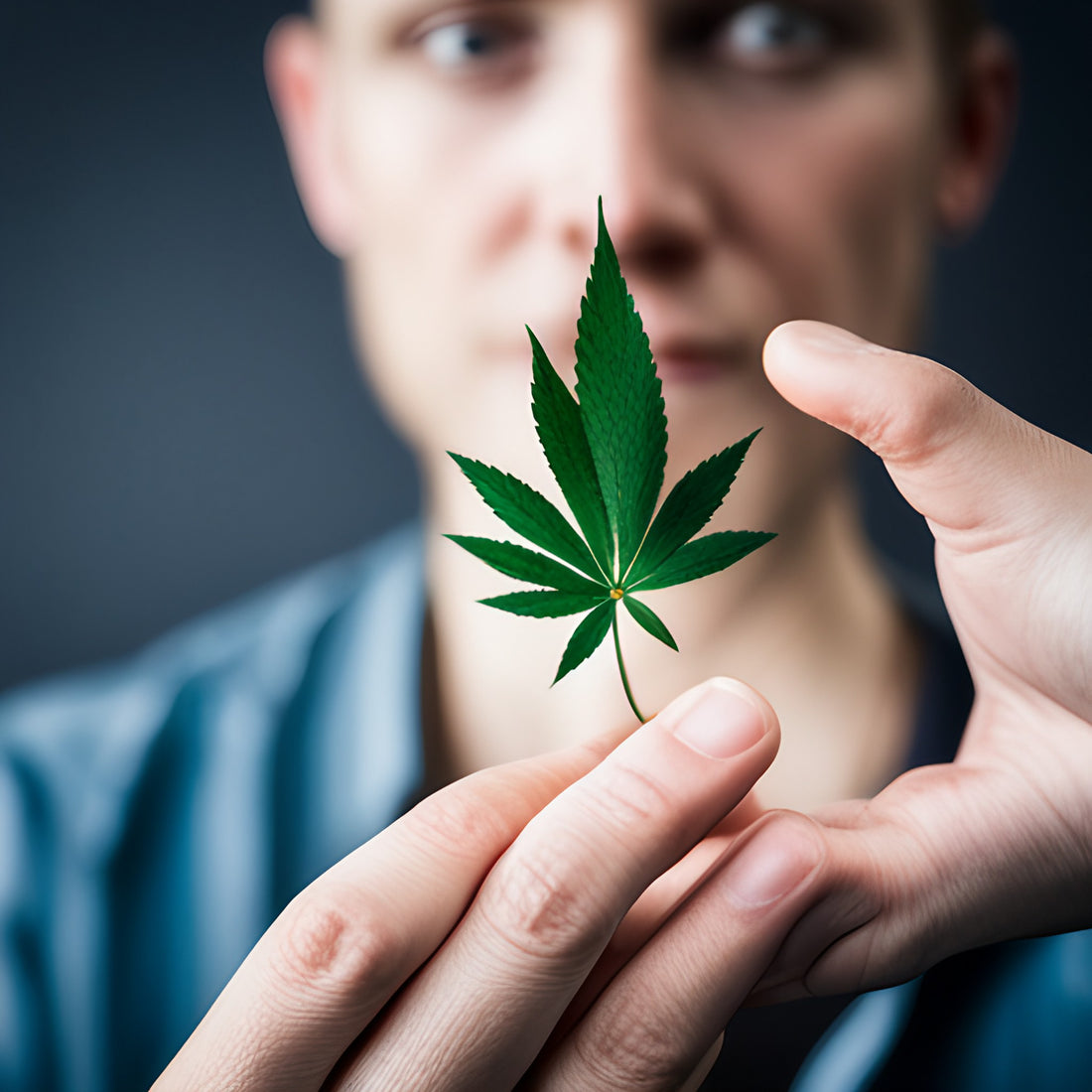
What are the differences between HHC, HHC-O, HHC-P, THCv and THCp?
The cannabis and hemp market is evolving rapidly, and with it new cannabinoids and substances are emerging, promising consumers a diverse range of experiences. The latest compounds in focus include HHC (hexahydrocannabinol), HHC-O, HHC-P, THCv (tetrahydrocannabivarin), and THC (tetrahydrocannabinol). Although they have similar letter combinations, these cannabinoids differ in their chemical structure, effects, and legal status. In this blog post, we will explore these differences.
HHC: Hexahydrocannabinol
HHC is a semi-synthetic cannabinoid derived from THC. It is actually a more hydrogen-saturated form of THC that can be more stable under certain conditions. HHC is valued because it is said to produce similar effects to THC, although it is often described as less potent.
HHC-O: Acetate version of HHC
HHC-O is a chemical variant of HHC with an acetate group added. This modification can alter and strengthen the effects of HHC. There are reports that adding an acetate group to a cannabinoid increases its ability to interact with our body's CB1 and CB2 receptors, which can lead to a more intense effect.
HHC-P: Another variant of HHC
HHC-P is a little-researched substance that has been described as a type of “super HHC.” The specific effects and properties of HHC-P have yet to be established through scientific research, but anecdotal reports suggest that it may be an even more potent form of HHC.
THCv: Tetrahydrocannabivarin
Unlike the cannabinoids mentioned above, THCv is a naturally occurring cannabinoid in the cannabis plant. Interestingly, THCv has a similar molecular structure to THC, but it has different effects. Some studies suggest that THCv can have an appetite-suppressing effect, unlike THC, which often stimulates hunger. THCv is also said to play a role in regulating blood sugar levels and providing energy.
THC: Tetrahydrocannabinol
THC is probably the best known cannabinoid and is responsible for the psychoactive effects of cannabis. It is a heavily regulated substance that is mostly illegal in many countries, including Germany. The effects of THC include relaxation, feelings of happiness, increased appetite and, in some cases, analgesic effects.
Summary
While THC is the most studied cannabinoid and THCv has received more scientific attention in recent years, HHC and its derivatives are still relatively early in research. It is important to emphasize that information about these cannabinoids is evolving rapidly and the legal situation can vary greatly in different regions.
For consumers, this means that it is important to always be well informed and to purchase products from reputable manufacturers. You should also be aware of the legal framework in your own country. Regardless of which cannabinoid you want to consume, it is advisable to start with low doses and carefully monitor your own reaction, especially with less researched substances such as HHC-O and HHC-P.
The field of cannabinoids is exciting and dynamic, and as science continues to investigate the diverse substances in this plant family, it is essential for consumers to stay informed and act responsibly.
What are the differences between HHC, HHC-O, HHC-P, THCv and THCp?
The world of cannabinoids is vast and varied, and as research and development advances, new compounds continue to appear on the market. Some of the most interesting include HHC (hexahydrocannabinol), HHC-O and HHC-P, as well as the variants THCv (tetrahydrocannabivarin) and THCp (tetrahydrocannabiphorol). In this blog post, we take a look at these cannabinoids and how they differ from each other.
HHC (hexahydrocannabinol)
HHC is a semi-synthetic cannabinoid derived from THC. The molecular structure of HHC is similar to that of THC, but it contains additional hydrogen atoms. This change makes HHC less psychoactive than THC and provides a milder high. HHC is known to have relaxing effects and may be helpful for pain and anxiety.
HHC-O
HHC-O is an acetated form of HHC, meaning that an acetate molecule has been added. The compound is often described as more potent compared to HHC, which could be due to the increased bioavailability caused by the acetated process. Users often report stronger, sometimes almost psychedelic effects.
HHC-P
HHC-P, also known as hexahydrocannabiphorol, is a recently discovered variant of HHC. Not much is known about this cannabinoid, but initial research suggests that it has similar properties to HHC, but may produce even more intense effects.
THCv (tetrahydrocannabivarin)
THCv differs from THC due to a change in the side chain of the molecular structure. This cannabinoid is less psychoactive than THC and has unique properties. A known effect of THCv is appetite suppression, which distinguishes it from many other cannabinoids that typically increase appetite.
THCp (Tetrahydrocannabiphorol)
THCp is one of the newest discoveries in the world of cannabinoids and is structurally similar to THC but with a longer alkyl side chain. This small change has a big impact on potency. Early studies have shown that THCp has a significantly stronger binding to the CB1 receptor, meaning it could have a much stronger psychoactive effect than THC.
Conclusion
Exploring the individual properties of these cannabinoids shows how diverse the effects and therapeutic potential of cannabis compounds can be. The differences between HHC, HHC-O, HHC-P, THCv and THCp are not only due to their chemical structure, but also to their impact on the body and mind.
While research in this area is still in its infancy, it offers a fascinating insight into the potential that lies within the cannabis plant. However, it is important to be aware that the availability and legality of these substances can vary greatly from country to country and that further research is needed to fully understand their safety and effectiveness.
Given the rapidly evolving landscape of cannabinoid products, it is crucial to be fully informed and exercise caution when using these substances, and to be aware of the legal requirements in your area for any cannabis product.